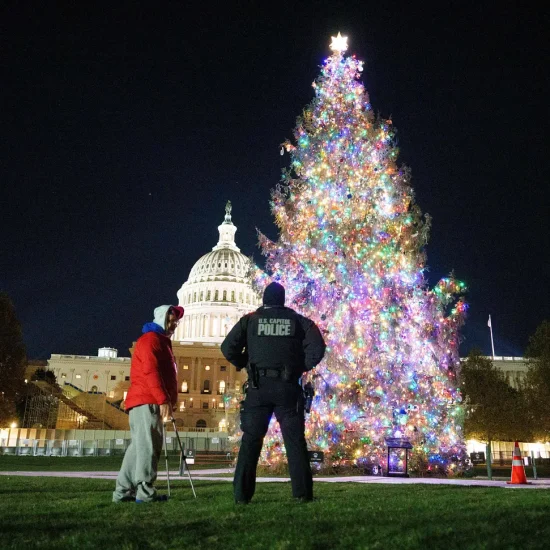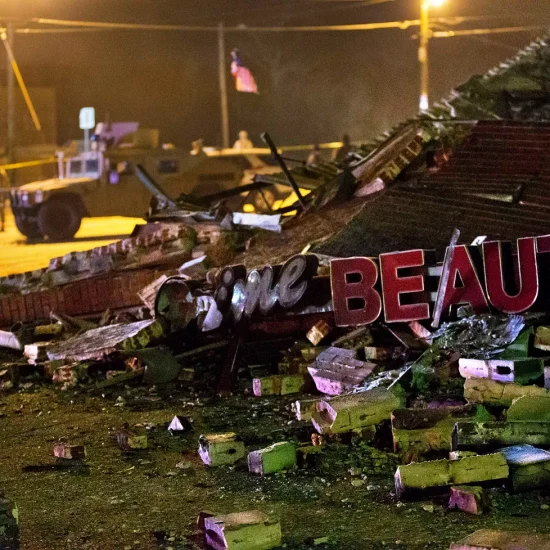Luke records a parable of Jesus concerning the plight of two men in the 16th chapter of his Gospel. The subhead identifies the teaching as “The Rich Man and Lazarus.”

Bill Webb
|
The story concerns the lives and the after-lives of two men who would have recognized each other. They probably saw each other every day. One was a man of wealth. He dressed in purple and fine linen, lived every day in luxury and resided in a gated community. Jesus would have known the name of this person, but in the story he simply calls him by what was important to the man — a rich man.
By contrast, the parable introduces us to a beggar with a name — Lazarus. Someone brought him to the rich man’s gate every day. He had sores covering his body and was helpless to shoo away the stray dogs who came by and licked them. His daily longing was that someone might pitch the scraps that fell from the rich man’s table to him to satisfy his hunger.
These two were a study in contrasts. The implication is that one overdid it at the dinner table while the other did without, living on the edge of starvation. It is bitterly ironic that there was enough food in this parable to feed both men, and probably many others. But Lazarus did without.
According to Jesus’ story, both died. We’re not told the causes, but we might guess. Lazarus went to the place of eternal security and found himself in the presence and care of Father Abraham. The rich man found himself in hell, separated for eternity from Abraham, and agonizing in the place of fire. Interestingly, he could see Abraham and the man he knew as Lazarus on the other side.
Lazarus lived hoping he could eat crumbs to satisfy his hunger; the unnamed man of wealth died and found himself begging for a single drop of water in a vain attempt to satisfy his agonizing thirst. He asked Abraham to send Lazarus — he used his name — to deliver a single drop of water.
Once his first request was denied, the man made another. He feared his five brothers were on the same course as he. “Send Lazarus to warn them,” he cried. “They’ll believe a man who has come back from the dead.”
The parable makes it clear that the whole family knew Lazarus; they were all aware that he had died. Perhaps he had expired while begging for food at the rich man’s gate.
Jesus doesn’t condemn the rich man for his wealth in this parable. His sin was that he knew what he should do, he had the means to do it, and he failed to alleviate the human suffering of a fellow human being. To make it worse, he knew Lazarus well enough to recognize his sad condition and he ignored him day after day.
The plight of the impoverished, particularly the hungry, was high on Jesus’ radar. He did something about it, and he admonished others to follow his example.
October on the Christian calendar is a time when we remind each other to notice those who lack the basic necessities of life, particularly food. Baptists have many ways to respond, in part because we have so many different Baptist groups.
Southern Baptists may give though their local churches to ensure money goes to the World Hunger Fund (worldhungerfund.com) to provide hunger relief virtually around the world. The site is a good source of information on hunger issues.
The Cooperative Baptist Fellowship provides a number of resources useful in dealing with poverty and hunger issues in the United States and around the world (thefellowship.info).
The Baptist World Alliance works through Baptist bodies throughout the world to identify human needs and to distribute resources and to educate (bwanet.org/bwaid).
Bread for the World has for the past 35 years served as a Christian lobby on behalf of the poor and hungry across the United States and the world. It particularly works to ensure U.S. aid is used effectively and targets critical needs, utilizing its Offering of Letters each year as a tool to influence legislators on behalf of the hungry (bread.org).
There are many other organizations and groups that enable people to know the needs. But each depends upon the will of people able to help make the critical difference.
Bill Webb is editor of Word&Way.






